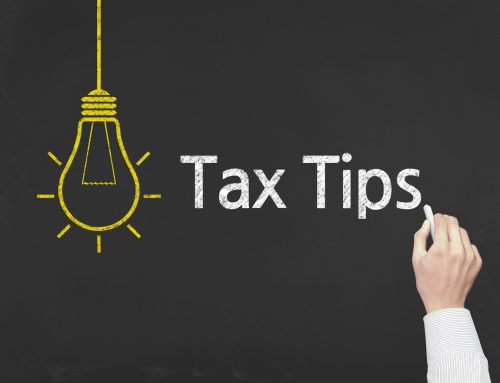
We’ve entered a full year of living with the pandemic, and there have been several events during the year that could affect you this tax season. In April 2020, the CARES Act (Coronavirus aid, Relief, and Economic Security Aid) provided relief to individual Americans and businesses and temporarily altered some parts of the tax code. While this was almost a year ago, the implications for you may extend to this year’s tax season. Here are 5 things to know about COVID and your taxes.
Stimulus Checks
If you received a stimulus payment in 2020, you don’t have to include it as taxable income on your federal income tax return.[1] This is true whether or not you owe tax payments for the 2020 tax year. Stimulus payment qualification was based on your latest tax return – either from 2018 or 2019. If you were under the income threshold in these years but not in 2020, you will not have to return or pay tax on your stimulus payment.
Temporary Rules for Retirement Account Distributions
If you withdrew up to $100,000 from a 401(k) or IRA in 2020 for COVID-related reasons in 2020, you can avoid the 10% penalty if you are younger than 59 ½. The CARES Act instituted this rule for 2020 only and allows for repayments over the next three years.[2] If you withdrew money, you must include that amount in your income tax for each year you repay or the entire distribution in your income for 2020. Keep in mind that what you do could affect your tax burden this year and in the following three years.
Suspended Required Minimum Distributions
While some Americans withdrew from their retirement accounts in 2020, others did not. The CARES Act also suspended Required Minimum Distributions (RMDs) for 2020.[3] If you are age 72 or older and would normally have to take an RMD but did not in 2020, you may want to consult a professional to see what tax planning strategies you could potentially pursue. Or, if you’re not yet 72, you can work with a professional to prepare for RMDs and create a long-term tax minimization plan. RMDs are one reason why your tax burden could actually increase in retirement.
Charitable Contributions
Did you make a charitable donation in 2020? Normally, there is a cap (60% of a taxpayer’s AGI) on how much someone can donate to charity tax-free. The CARES Act raised this limit to 100% of AGI for the 2020 tax year. There is also a provision that allows taxpayers who don’t itemize their deductions to deduct up to $300 in charitable donations just for the 2020 tax year.[4]
PPP Loans for Small Businesses
The Paycheck Protect Program (PPP) helped businesses affected by COVID by providing potentially forgivable loans. When a PPP loan is forgiven, a business doesn’t have to include it in its gross income for federal taxes. But, any expenses paid with PPP money are not tax-deductible.[5]
We’ve all been in the same boat this past year, even if it doesn’t feel like it due to social isolation. Know that we want to be there for you throughout your entire retirement journey and to help you create a plan that weathers storms and accounts for the unexpected. We can help you adjust your tax strategies and create a long-term tax minimization plan in retirement. Sign up for a complimentary review to start the conversation about your retirement finances and tax burden.
[1] https://www.irs.gov/newsroom/economic-impact-payment-information-center-topic-j-reconciling-on-your-2020-tax-return
[2] https://www.congress.gov/bill/116th-congress/senate-bill/3548
[3] https://www.irs.gov/newsroom/irs-seniors-retirees-not-required-to-take-distributions-from-retirement-accounts-this-year-under-new-la
[4] https://www.congress.gov/bill/116th-congress/house-bill/748
[5] https://www.thebalancesmb.com/how-covid-19-related-laws-may-affect-your-2020-tax-return









